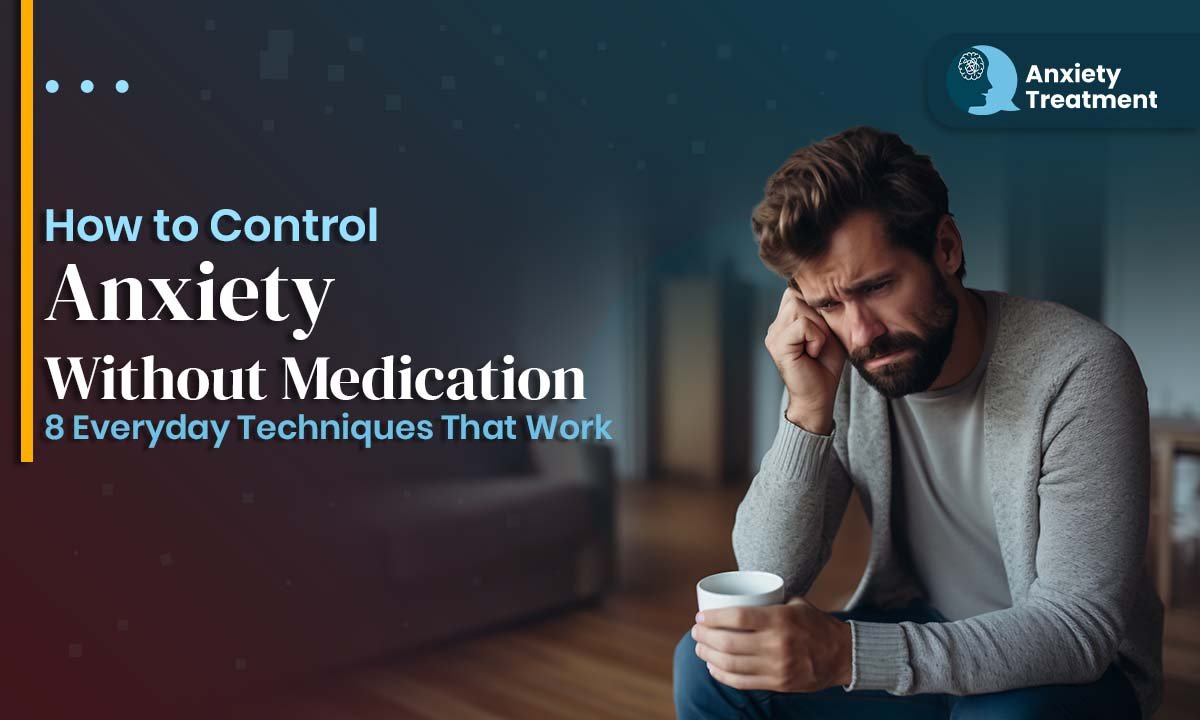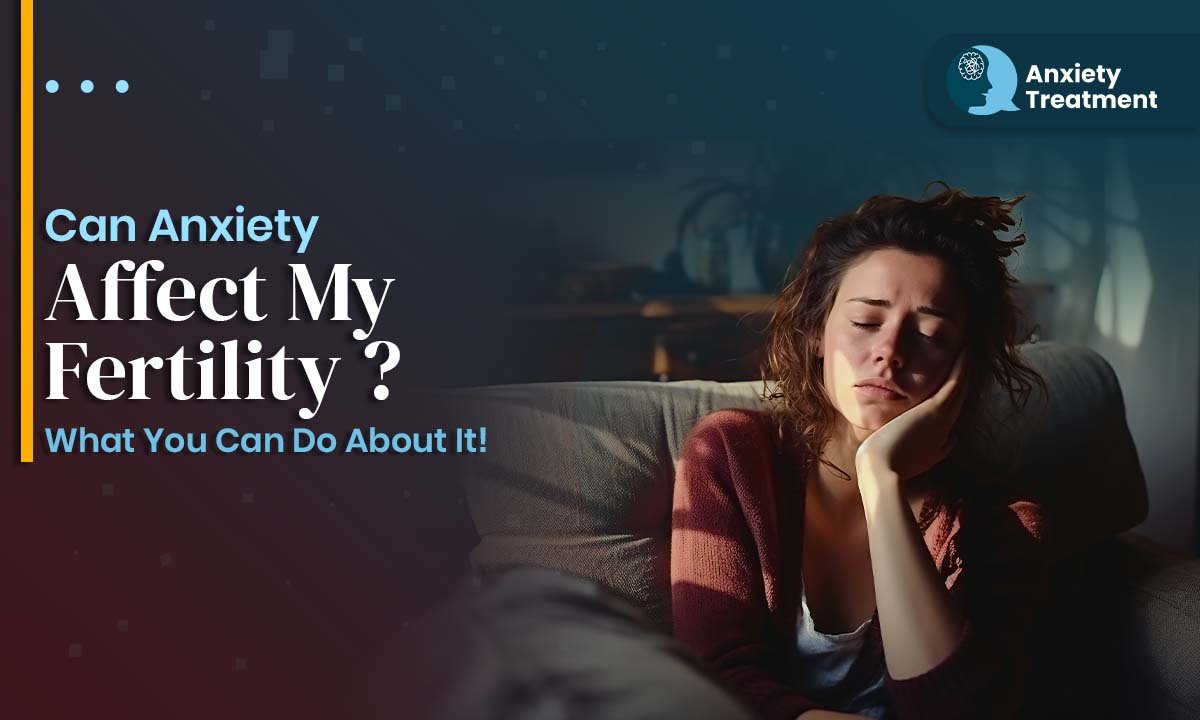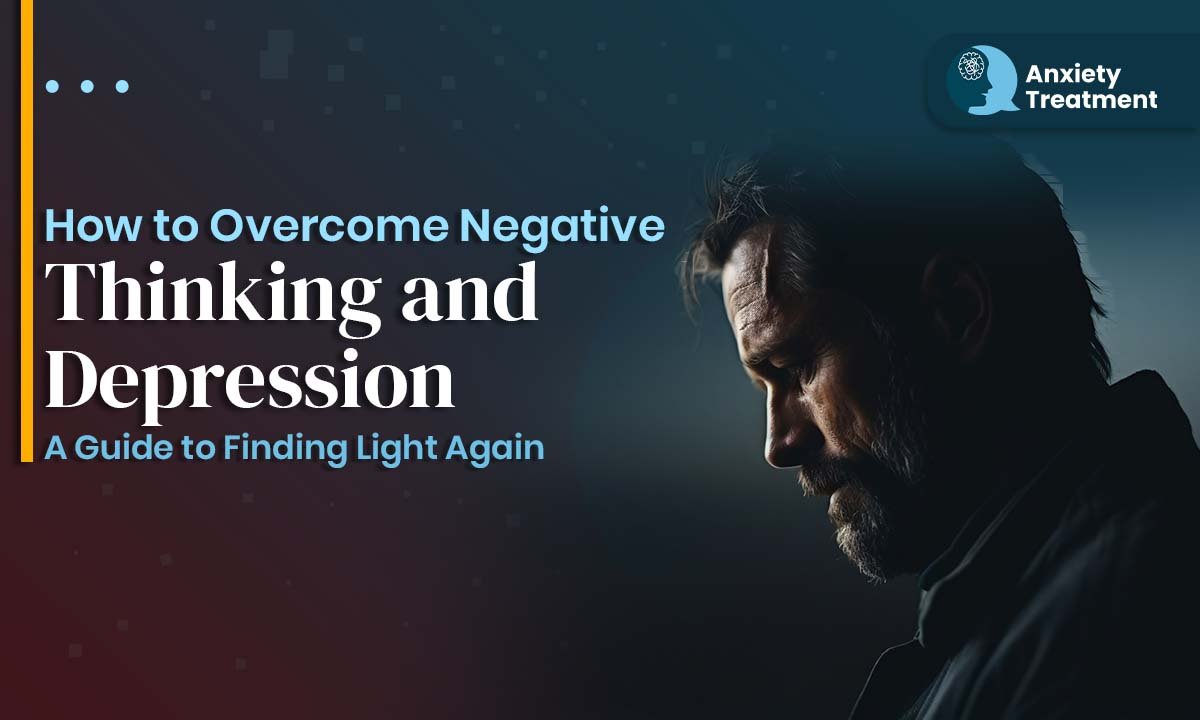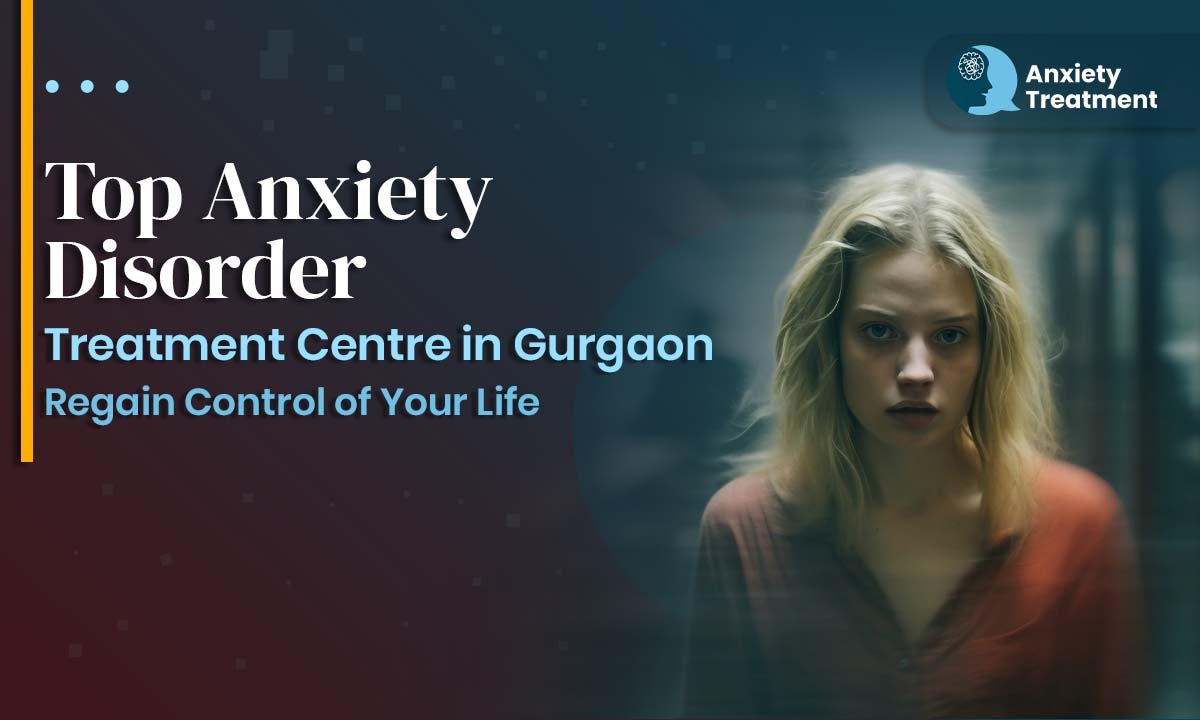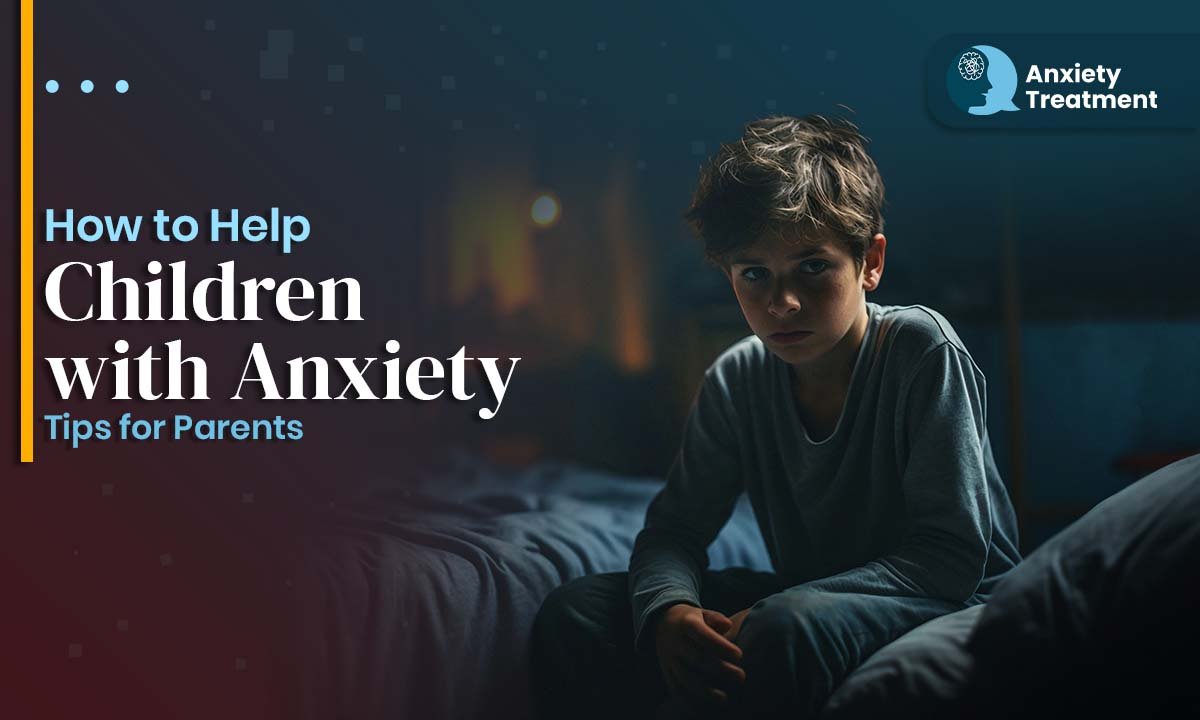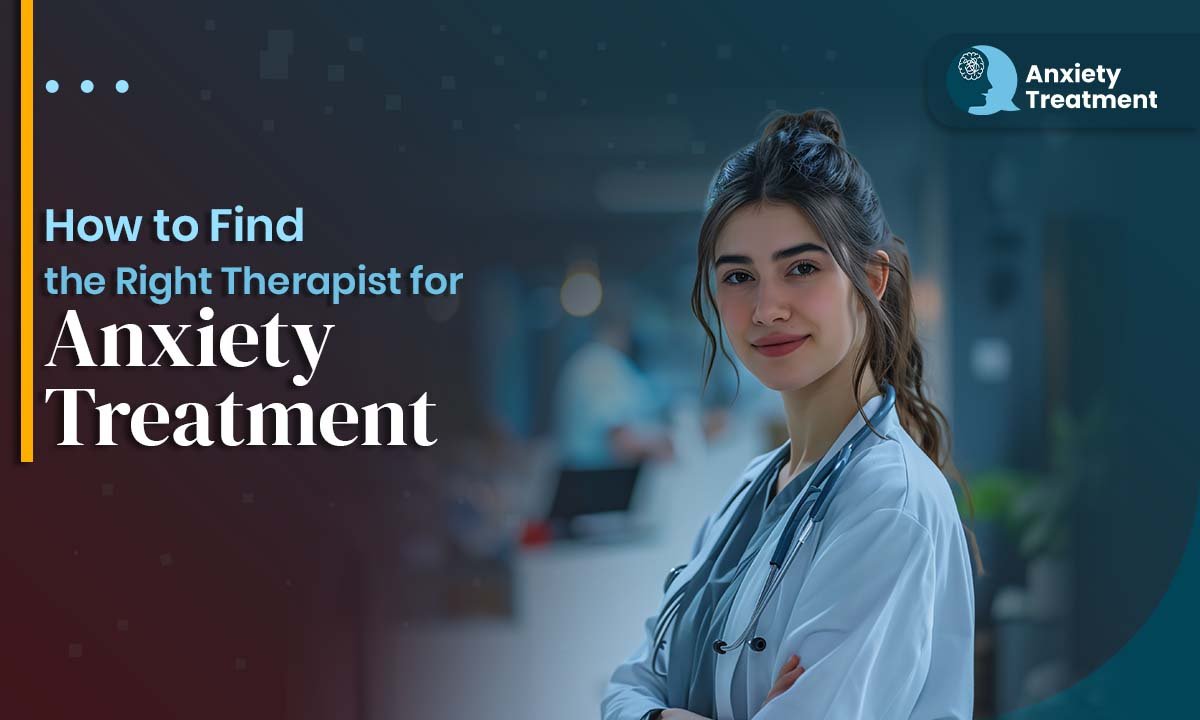Anxiety can feel overwhelming tight chest, racing thoughts, restlessness. While medication can help, many people prefer to explore natural ways to manage anxiety first. Whether you're dealing with daily stress or chronic worry, there are powerful, research-backed techniques you can use to take control of your mind and body without relying on prescription drugs.
In this blog, we’ll explore how to control anxiety without medication by highlighting 8 practical tools that you can start using today. These strategies are gentle, accessible, and proven to reduce symptoms over time.
Why Consider Anxiety Relief Without Medication?
For some, medications may cause side effects or dependency concerns. Others may simply want to explore natural ways to manage anxiety before turning to pharmaceuticals. Regardless of your reasons, it’s important to know that effective solutions exist and you’re not alone in seeking them.
1. Practice Deep Breathing & Relaxation Techniques
Breathing deeply signals the body to relax. Shallow, rapid breathing (common during anxiety) increases tension. Instead, slow, mindful breathing calms your nervous system.
Try this: The 4-7-8 technique: Inhale for 4 seconds, hold for 7, and exhale for 8 seconds. Repeat 4 times.
Why it works: This pattern activates the parasympathetic nervous system, helping you calm both physically and mentally.
2. Move Your Body Every Day
Exercise is a natural stress reliever. It increases endorphins, improves sleep, and reduces cortisol the stress hormone. You don’t need intense workouts even walking counts.
Options include:
- Brisk walking or jogging
- Yoga or tai chi
- Dance or stretching
Why it works: Movement channels nervous energy outward and boosts mood-regulating neurotransmitters like serotonin and dopamine.
3. Use Mindfulness & Meditation
Mindfulness means staying present without judgment. When you're anxious, your thoughts race into future “what if” scenarios. Meditation brings you back to the now.
Start small: Try just 5 - 10 minutes a day using a free app like Insight Timer or YouTube guided meditations.
Why it works:
Studies show mindfulness lowers anxiety levels, improves sleep, and strengthens emotional resilience over time.
4. Journal Your Thoughts
Writing down your worries helps you see patterns and triggers more clearly. It creates a mental "release valve" for overwhelming emotions.
Try this exercise: Each morning or evening, jot down:
- What made you feel anxious
- How you reacted
- One thing you're grateful for
Why it works: This simple habit helps you process thoughts rather than letting them spiral.
5. Prioritize Quality Sleep
Poor sleep worsens anxiety and vice versa. Establish a soothing nighttime routine that signals your body to wind down.
Tips for better sleep :
- Avoid screens 1 hour before bed
- Stick to a regular sleep schedule
- Use lavender or chamomile for relaxation
Why it works: Consistent rest regulates mood, restores brain function, and supports overall emotional balance.
6. Limit Caffeine, Sugar, and Alcohol
What you consume affects how you feel. Caffeine can mimic anxiety symptoms. Sugar leads to energy crashes. Alcohol may disrupt sleep and increase mood swings.
Healthy swaps:
- Herbal teas like lemon balm or peppermint
- Fruit or nuts instead of sugary snacks
- Hydration through water or coconut water
Why it works : Stable blood sugar and reduced stimulation help your nervous system stay balanced.
7. Practice Grounding Techniques
Grounding helps you shift focus from your mind to your physical body. It's useful during panic attacks or racing thoughts.
Try this : 5-4-3-2-1 Method:
- 5 things you can see
- 4 things you can touch
- 3 things you can hear
- 2 things you can smell
- 1 thing you can taste
Why it works: It brings attention to your senses and breaks the cycle of anxious thoughts.
8. Connect with Supportive People
You don’t have to face anxiety alone. Talk to a trusted friend, join a support group, or consider therapy even if it's not medication-based.
Consider:
- Online mental health communities
- Local support groups
- Speaking to a counselor trained in CBT or mindfulness
Why it works:
Being seen, heard, and supported reduces emotional load and reminds you you're not alone.
When to Seek Professional Help
If your anxiety becomes unmanageable or interferes with daily life, reach out to a mental health professional. Even without medication, therapy such as Cognitive Behavioral Therapy (CBT) can be highly effective.
Final Thoughts
You have more power than you think. By practicing these 8 everyday techniques, you can begin to reclaim your calm one breath, step, or journal entry at a time.
Remember, learning how to calm anxiety without medication is a journey. Some days will be easier than others. What matters is that you’re taking steps to support your well-being, naturally and consistently.

